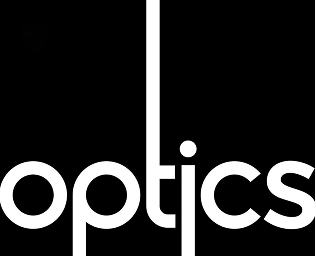We normally wouldn’t start out by giving you a homework assignment, but when we’re about to start talking like Orson Welles, it doesn’t hurt to frame the conversation. When’s the last time you considered how human generated content marketing would compete with computer generated content? First, read the following two sports overviews from the New York Times:
Overview 1:
“Things looked bleak for the Angels when they trailed by two runs in the ninth inning, but Los Angeles recovered thanks to a key single from Vladimir Guerrero to pull out a 7-6 victory over the Boston Red Sox at Fenway Park on Sunday.”
Overview 2:
“The University of Michigan baseball team used a four-run fifth inning to salvage the final game in its three-game weekend series with Iowa, winning 7-5 on Saturday afternoon (April 24) at the Wilpon Baseball Complex, home of historic Ray Fisher Stadium.”
Human content marketing vs. computer generated content
Did they sound feasible? Did anything stand out between them? And – mic drop – did you realize that one of them wasn’t written by a human? We didn’t think so. In a study conducted at Karlstad University in Sweden, most readers could not tell the difference between a computer generated article and a piece written by actual people (creepy, we think not). When compared, they indicated computer generated content was drier, but equally trustworthy and realistic. Okay, now that you’ve re-read them, let’s take a look at what this means for the future of marketing.
The reality is, you’ve probably read plenty of computer generated content already, ranging from financial reports, to news articles, and press releases. News agencies, big businesses, and financial institutions are leaning on computer generated content algorithms to keep up with the media’s insatiable appetite for up-to-the-minute information. Until now, computers have not begun generating advertising content marketing or fiction (although a few attempts at poetry have debuted with reasonable success). That isn’t to say that they won’t or can’t – however.
Implications for the digital marketing agency:
Aside from a vague sense that this could probably be a subject for this summer’s artificial intelligence blockbuster hit, the rising emergence of computer generated content has very real implications for the traditional content marketing agency and digital marketing agency. Some scientists estimate that close to 90% of news could be created by a computer as this technology progresses. But will that make content writers obsolete?
We’d like to think not (after all, we are very much enjoying writing this article). And all it takes is but one conversation with Apple’s Siri or Microsoft’s Cortana to doubt that a computer could ever fully replace human vernacular. When we read Overview 1, which was written by a human, we agreed with consumer research that there was a warmth and colloquialism that set it apart from Overview 2, which was written by a computer. When tapping into content that speaks to our customers’ psyches and turns transactions into brand love affairs, we aren’t convinced that a computer can ever replace the wit and wisdom of a writer’s craft.
But what if?
As this technology evolves and becomes refined – or even proves us wrong – it may change how you interact with your digital marketing agency or advertising agency. Instead of working with them on editing and crafting content, you may be honing in on your SEO strategy to ensure your content ranks highest, that your keywords are the most specific to your customers, and that your content is found rather than generated.
How computer generation content will impact SEO:
This type of shift would also profoundly impact SEO strategy as well. If content becomes increasingly automated, it stands to reason that the act of categorizing and sorting it could also become more automated. We aren’t sure that SEO strategists would become obsolete either, banking on a new wave of competition between human generated content and computer generated content forged over nuanced distinctions between whether the searcher is seeking emotional or entertaining content versus informative or educational information.
What is certain is that as computer generated content floods the internet, there will be a much greater volume of content to sort, and search engines will have to balance between simply serving facts and figures (which would logically rank highest due to their high relevance and accuracy) against information that intrigues or inspires the mind (which may deserve a spot above the fold too).
Last but not least, what about consumers:
Despite any knee jerk reactions we might have about artificial intelligence or a begrudging bias against computers that can write better than us, the reality of this revolution is pretty remarkable. Refined computer generated content will allow customers to find information without wading through opinions, outdated facts, and biased content. Forget Wikipedia, evolved computer generated content could create a new knowledge center that surpasses every encyclopedia and Internet source we’ve ever seen. The implications are endless for the consumer, student, healthcare provider, or curious mind.
The verdict is still out, but we think the fact that most consumers aren’t aware how much computer generated content they’re already consuming shows great promise for its potential when applied with thoughtfulness and judgment. We believe that your digital marketing agency will continue to serve your customers the right content at the right time, but computer generated content will allow you to educate them even more about the benefits of your brand and services in concert with your other marketing efforts.
Like most industry disrupters, the future of computer generated content is unclear, but the potential is there.
